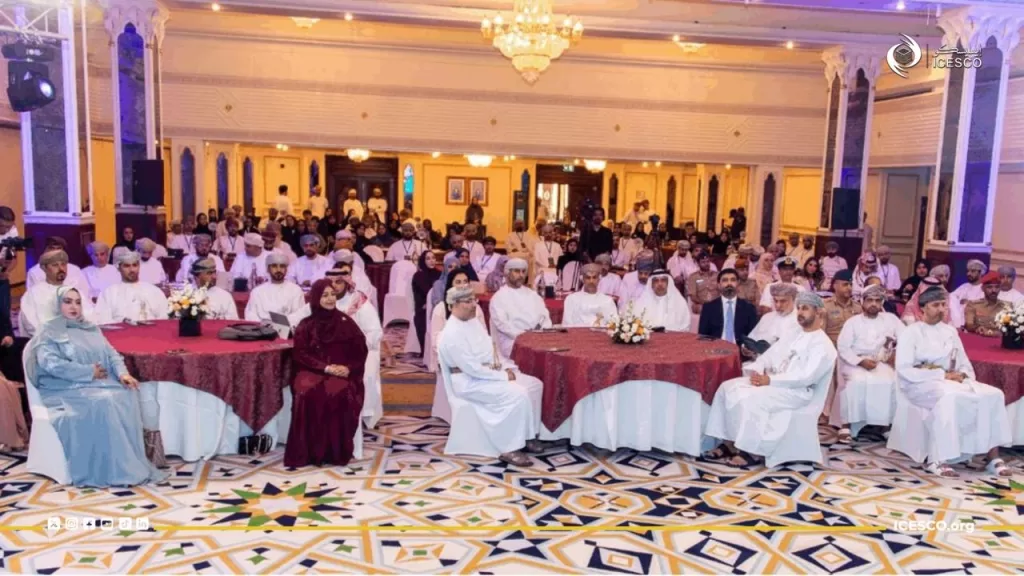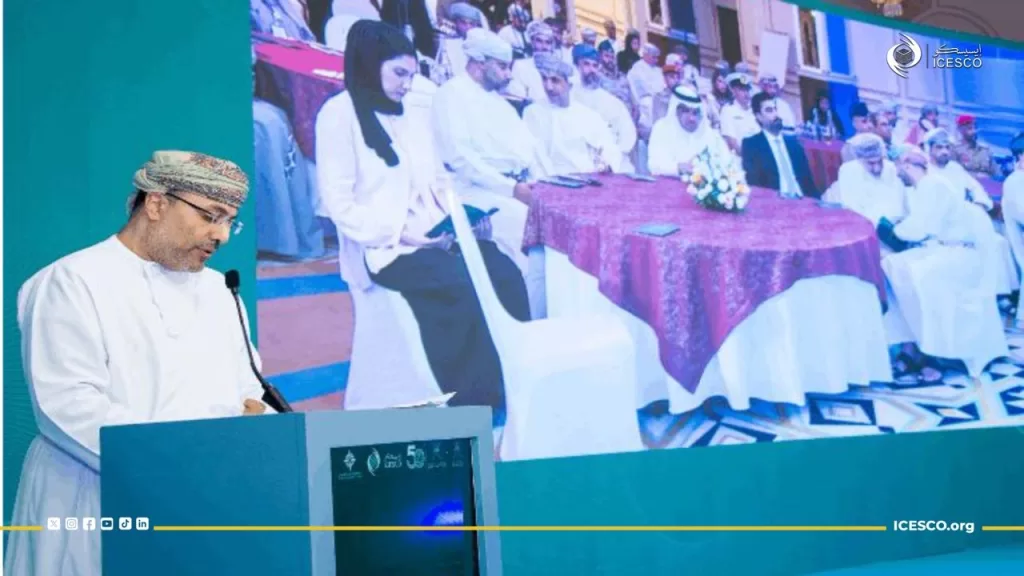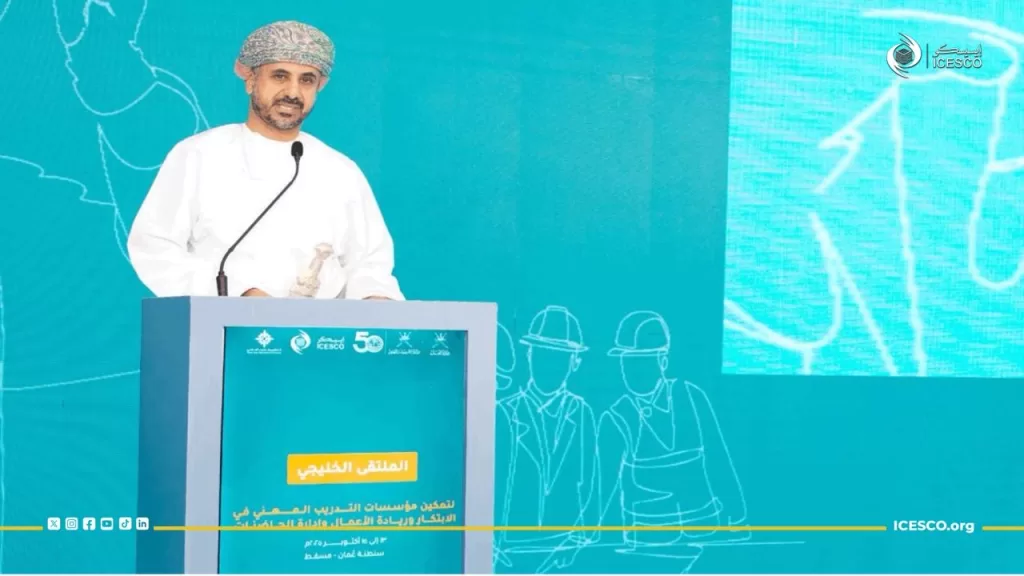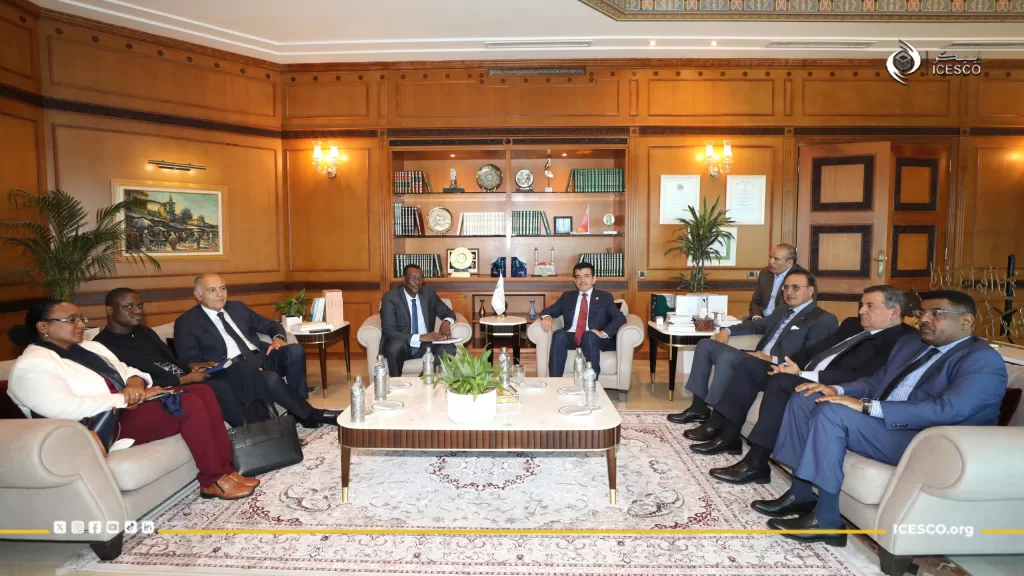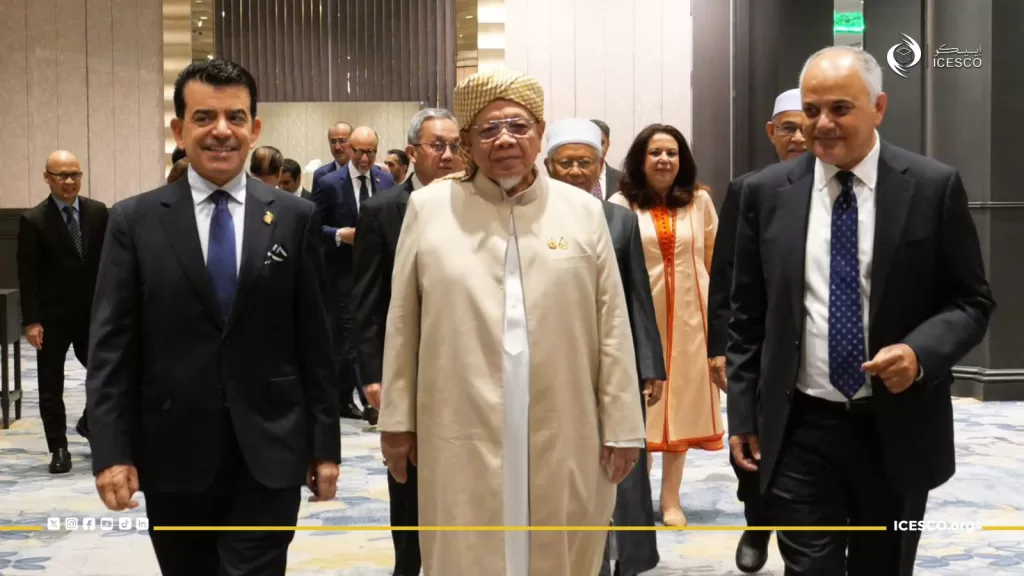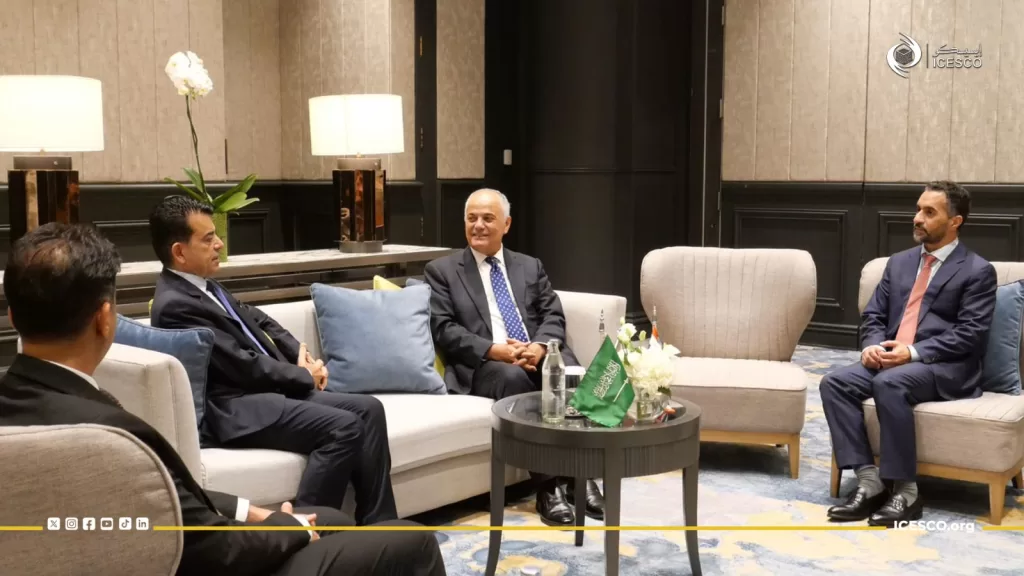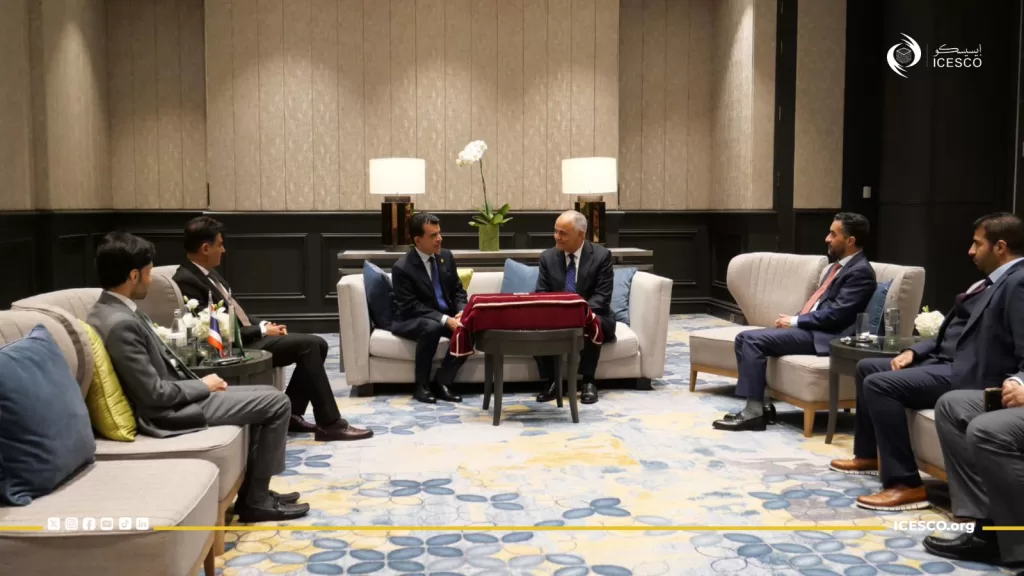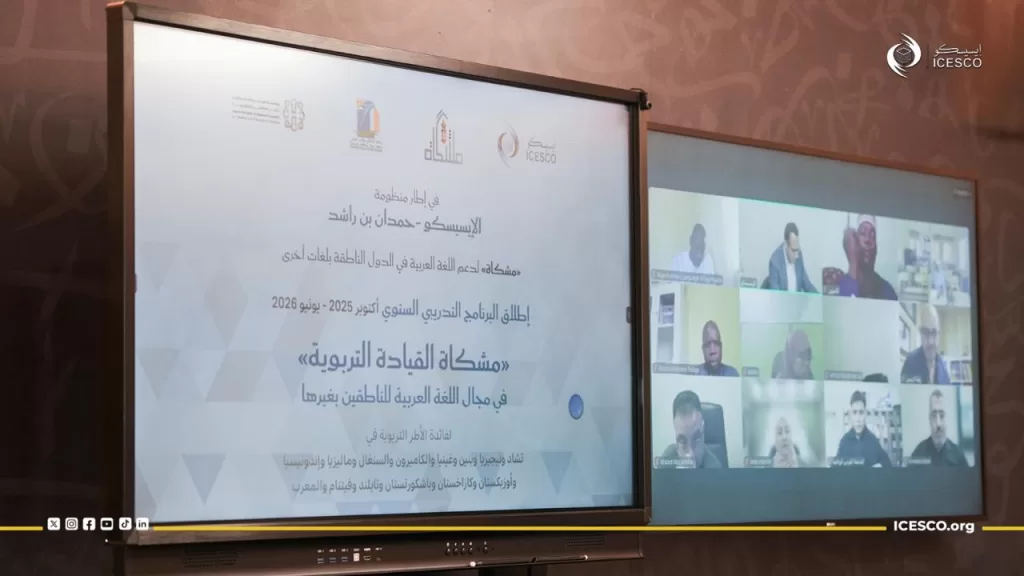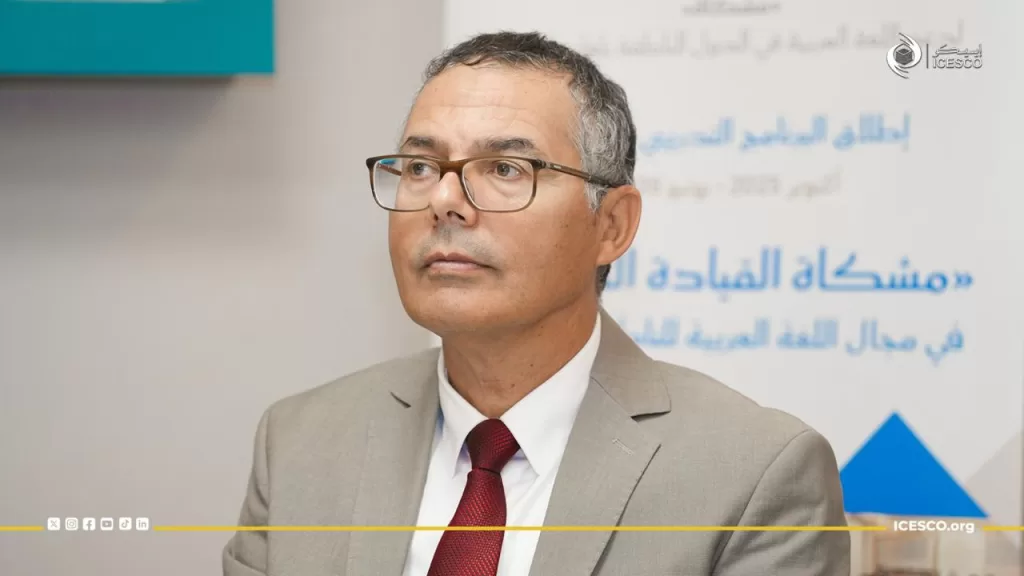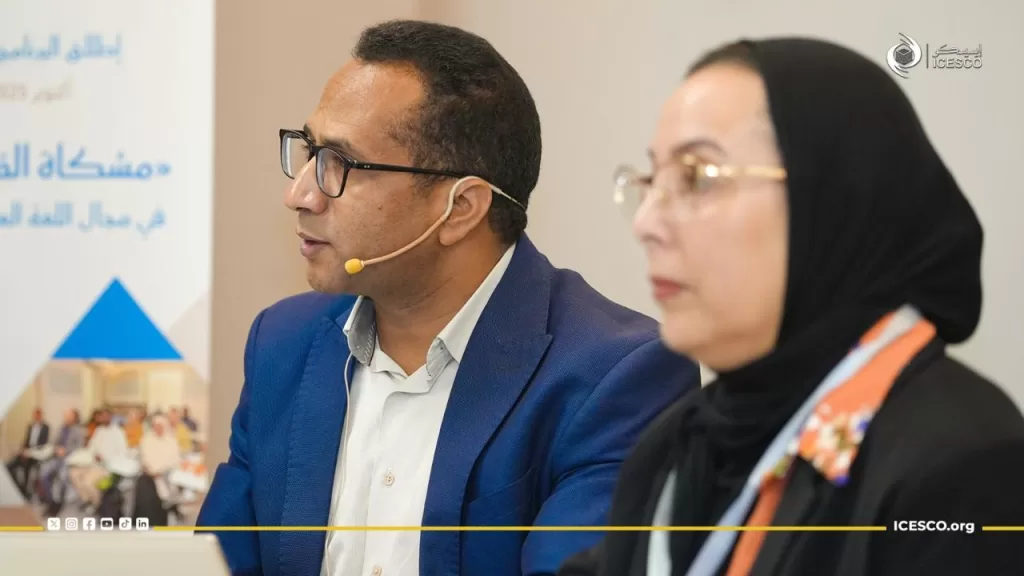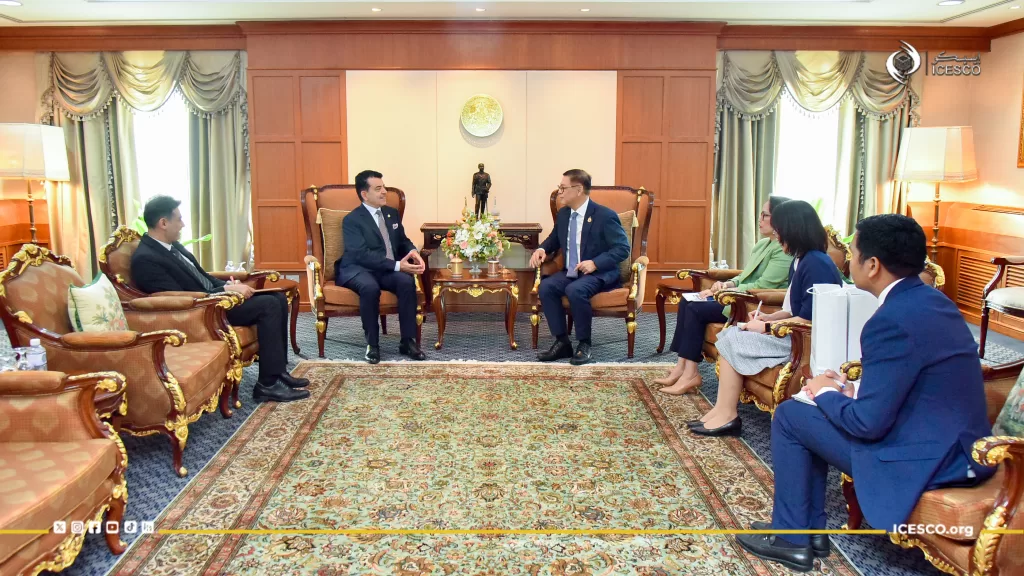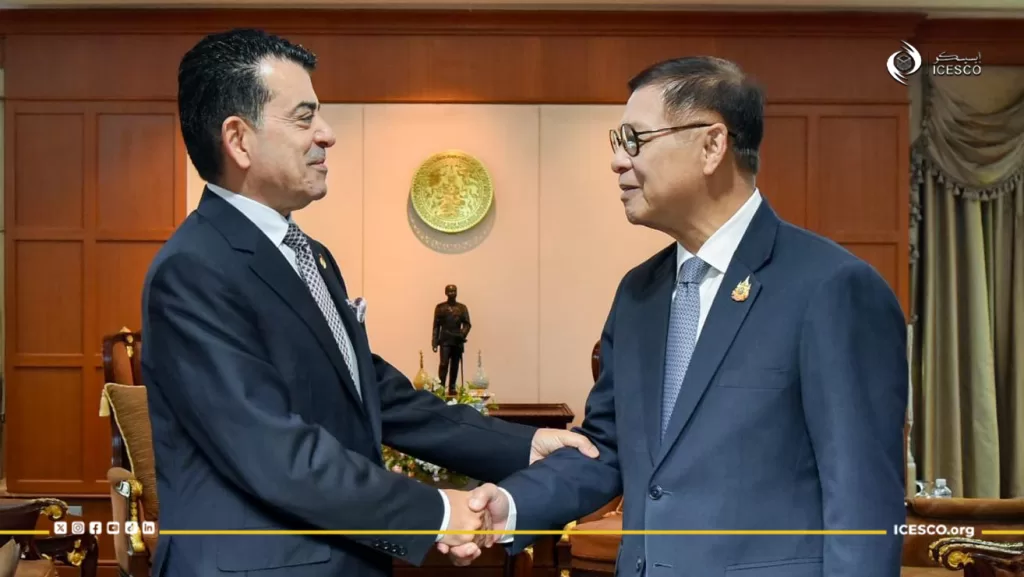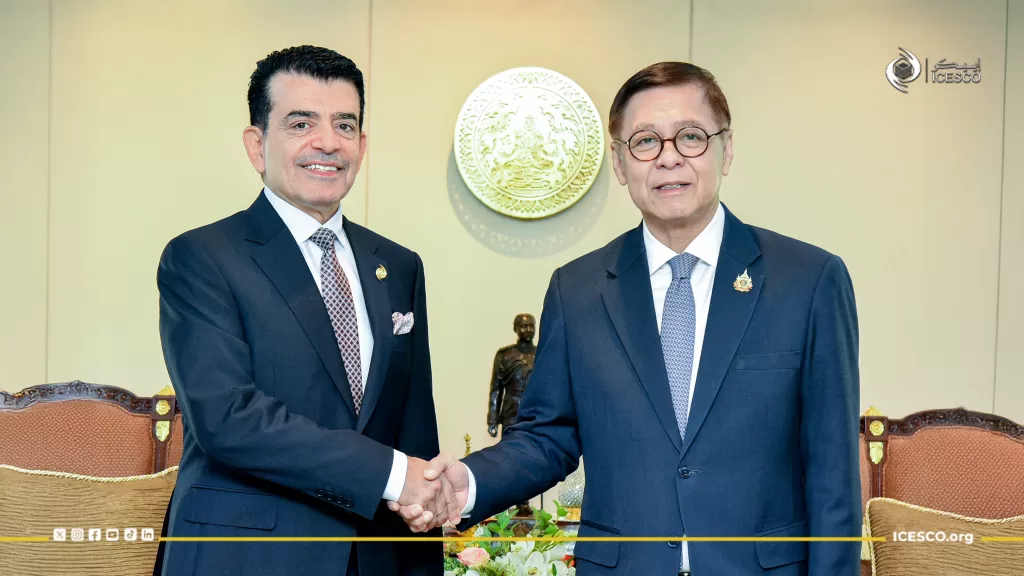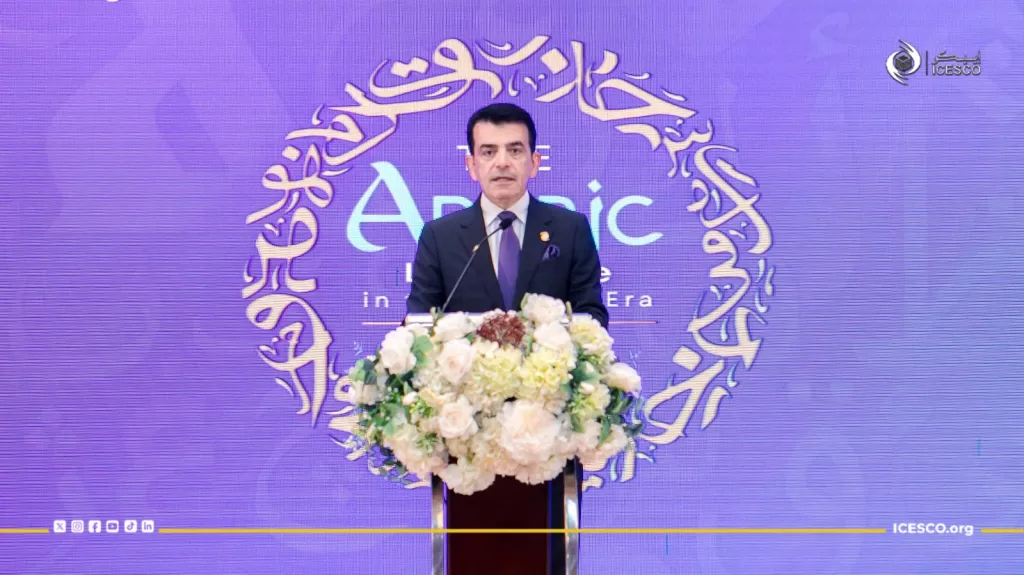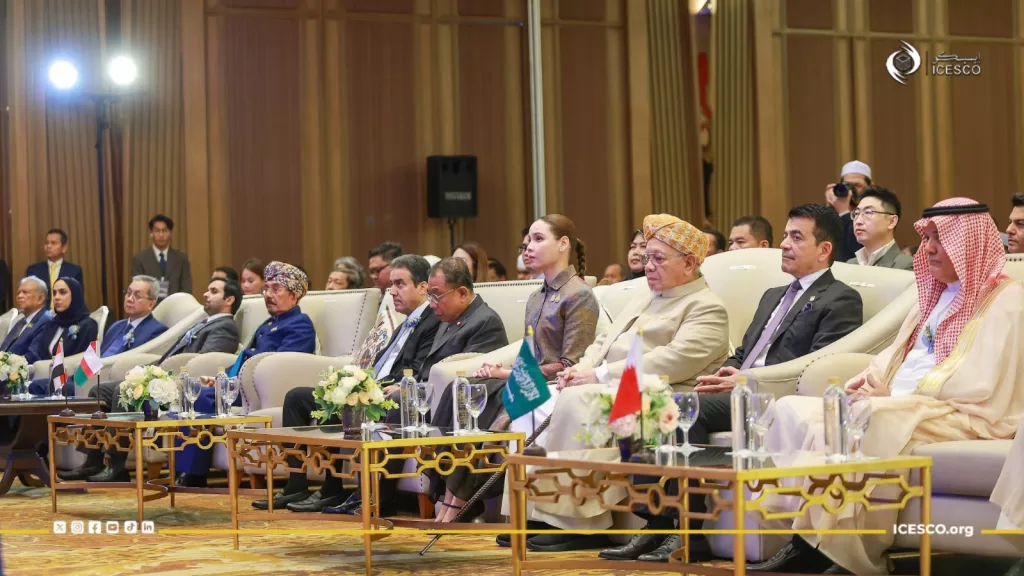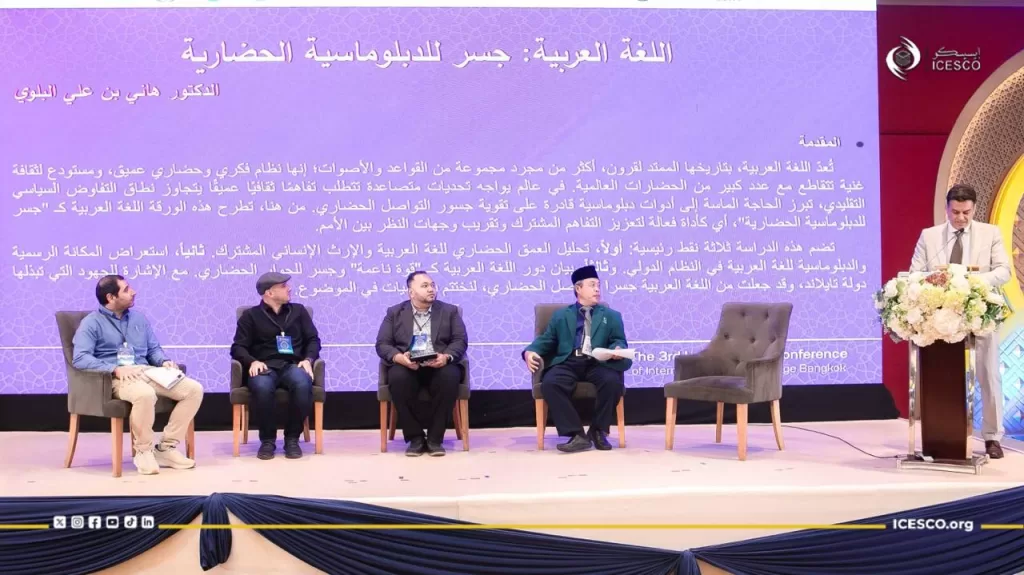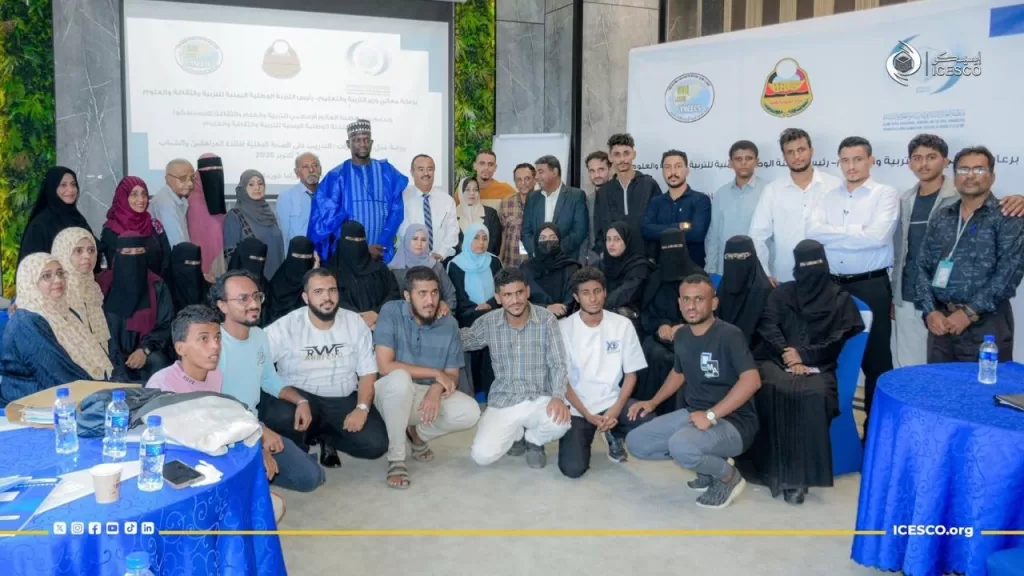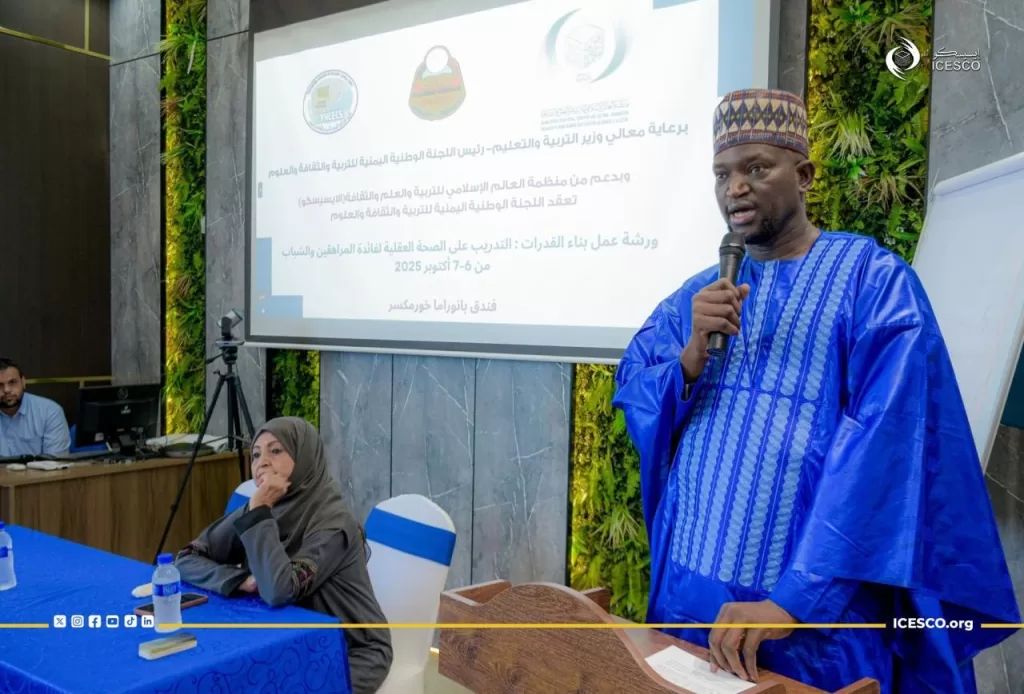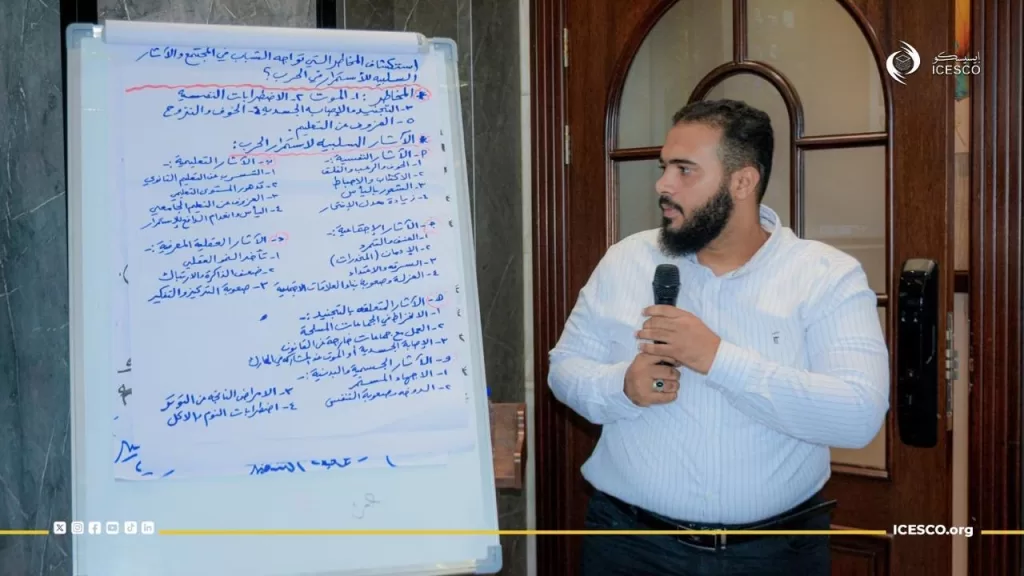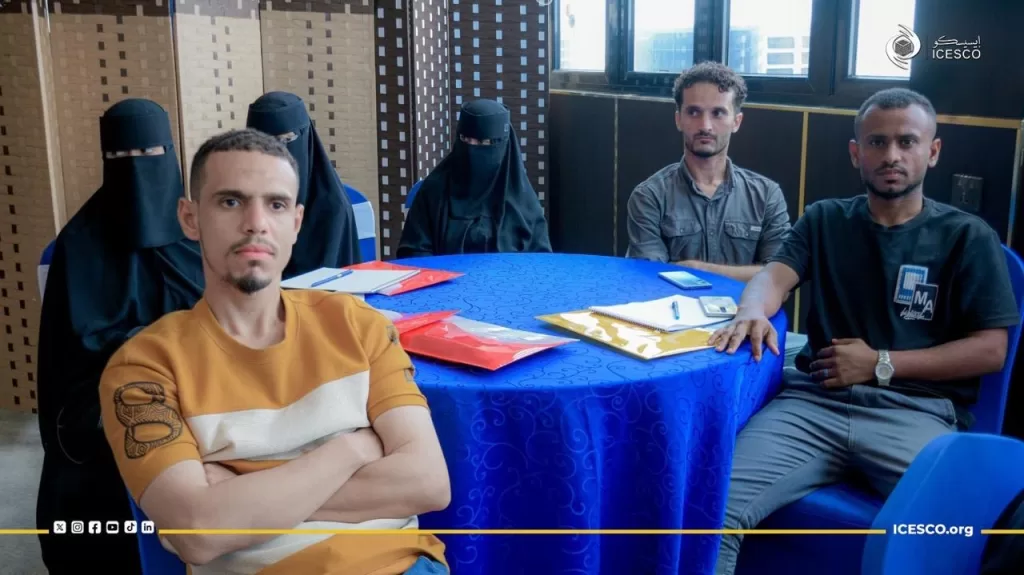The Islamic World Educational, Scientific and Cultural Organization (ICESCO) held a seminar titled “Narratives and the Question of Identity” on Wednesday, 15 October 2025, at its headquarters in Rabat, in celebration of World Novel Week. The seminar aimed to deepen the discussion around questions of identity in Arab narrative, explore its connections to current cultural transformations, and deconstruct the dialectic of place and memory. These themes were discussed by a distinguished group of writers, poets, thinkers, and academics participating in the event.
In his opening remarks, Dr. Salim M. AlMalik, ICESCO Director-General, emphasized that the Organization’s mission is to rewrite the civilizational narrative of the Islamic world with a contemporary spirit that highlights creativity and restores the value of the human being in light of their history and contributions. He added that the Islamic world is currently writing a new chapter in its cultural history, balancing authenticity and openness, and shaping a civilizational narrative based on diversity and mutual respect.

Dr. AlMalik pointed out that identity is not a wall of isolation but a window to the world through which we look with confidence and pride. He noted international data showing that over 50% of the world’s languages are endangered and that 80% of global cultural production is translated from Western languages, while Arabic, Asian, and African languages combined account for only 10% of translation activity. He considered these figures indicative of an imbalance in the fairness and cultural diversity of the human narrative.
In her intervention, Ms. Rawda El-Haj, Director of the Center for Poetry and Literature at ICESCO, stressed the role of narrative in enhancing awareness of identity and expanding its aesthetic horizons. Meanwhile, Iraqi thinker and academic Dr. Abdullah Ibrahim highlighted that identity is shaped within a narrative framework that gives it meaning and purpose, noting that autobiographical writing in modern Arabic novels has accumulated a creative fusion between fiction and autobiography, producing hybrid forms such as the “autobiographical novel” and the “novelized autobiography”.
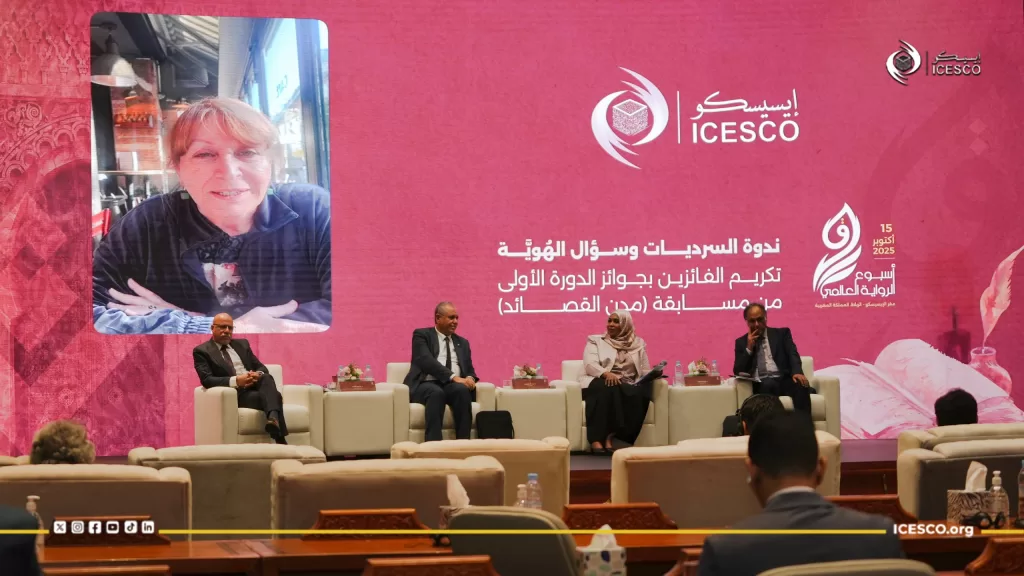
Dr. Mhamed Dahi, Moroccan critic and researcher in self-semiotics, addressed issues of dynamic identity and autobiographies in world literature, referencing the experience of French novelist Jean-Marie Gustave Le Clézio as a model for reclaiming origins and lineage through narrative travel across time and space. Egyptian literary critic Dr. Mahmoud Eldabh explained that the third millennium witnessed radical transformations that shook the certainty and rigidity of identity, and that the concept of identity now extends beyond the individual and the group to include the “identity of place and time.”
The seminar concluded with the honoring of winners of the first edition of the “Cities of Poems” competition, overseen by ICESCO’s Center for Poetry and Literature. Nine poets from various countries were recognized for their poems celebrating the cultural capitals of the Islamic world for the year 2024: Benghazi, Marrakech, and Azerbaijan’s Shusha. The ceremony also acknowledged the outstanding creativity of other participants in the competition.
This seminar came as part of ICESCO’s ongoing commitment to advancing its programs and initiatives aimed at promoting linguistic and cultural diversity and supporting narrative and poetic creativity as a key pillar in building a contemporary and open civilizational narrative.




